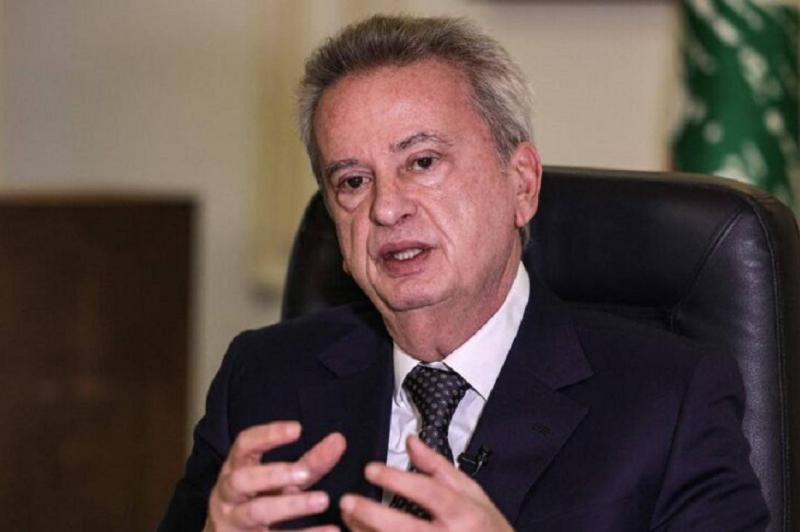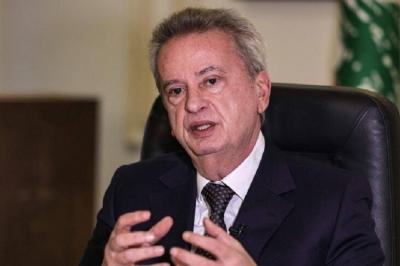Lebanon's Central Bank Governor Riad Salameh, previously celebrated as a financial expert, is set to leave his position on Monday after nearly 30 years. However, his legacy is marred by a devastating collapse in the banking sector and allegations of corruption both within the country and abroad. Many Lebanese viewed Salameh as the backbone of the financial system until its collapse in 2019, which saw his standing crumble as the financial meltdown impoverished many citizens and froze the deposits of most savers in what was previously one of the largest banking sectors.
His reputation further deteriorated when European countries began to initiate investigations regarding whether he abused his position to embezzle public funds and amass personal wealth. Salameh denies any wrongdoing, stating to Reuters days before his departure that he "acted according to the law and respected the legal rights of others" during his tenure.
In May, French and German authorities issued arrest warrants for Salameh, with Interpol's red notices indicating that he is "wanted" in both countries. The notice requested by France indicated some charges related to organized money laundering, while the notice requested by Germany also involved money laundering allegations.
The financial collapse in Lebanon followed decades of corruption and extravagant spending by the ruling elites. Many Lebanese hold Salameh and these elites responsible for the financial collapse, which saw the local currency lose about 98% of its value. In a television interview, the 73-year-old Salameh defended his tenure, suggesting that he became a "scapegoat" for the collapse, adding that "the government—not the central bank—is responsible for spending public funds."
In the final months of his term, some officials called for his resignation, while others remained silent.
The "destroyed" Lebanese Central Bank saw a dramatic transformation for someone who was once viewed as a potential president. Upon assuming the governorship, Salameh built a solid reputation as a financial system expert, distinguishing himself from many elites in power, many of whom were militia leaders during the civil war from 1975 to 1990, though he received significant support from them.
Salameh frequently attended international financial conferences, earned numerous banking awards, and enjoyed extensive powers due to his position. The financial system he oversaw provided many Lebanese with a living standard that did not align with the non-productive economy of the country. Savers received high-interest rates and were able to convert their local currency into dollars at a fixed exchange rate maintained by Salameh from 1997 until the financial collapse.
Their confidence was bolstered by Salameh's calm demeanor and statements that the lira was in a "good condition," as well as Lebanon's success in weathering the global financial crisis in 2008. However, the financial situation began to falter with a slowdown in dollar remittances, increasing pressure on a financial system that required continuous inflows of hard currency to survive.
Salameh maintained the financial system in place in 2016 by withdrawing dollars from local banks at high-interest rates. Critics labeled this move as a "Ponzi scheme" or a form of fraud, as it relied on acquiring new loans to pay off existing debts. With the depletion of dollars, foreign currency deposits for most savers were frozen, or they were forced to withdraw in local currency at exchange rates that stripped their savings of most of their value.
Former Economy Minister and Deputy Governor of the Central Bank Nasser Saidi remarked, "He leaves behind a destroyed institution that will have to be restructured amid losses of about $76 billion at the Central Bank."
The arrest warrants reflect the anger of many directed at Salameh, depicted in murals on the walls protecting the central bank's headquarters. Investigations focus on commissions the bank charged financial institutions for purchasing government bonds, the proceeds of which went to "Fori Associates," controlled by his brother Raja Salameh. The brothers deny transferring or laundering any public funds and assert that no funds from the central bank were transferred directly or indirectly to Fori Associates.
As part of the investigation, the French judiciary summoned Raja Salameh and Marianne Hweik, an aide to the Governor. In February, charges were leveled against Riad Salameh, his brother Raja, and his aide in Lebanon for money laundering, embezzlement, and illicit enrichment. However, critics have long questioned the seriousness of pursuing the case in Lebanon, where politicians can influence the judiciary. While judicial independence is stipulated in the constitution, Lebanon's chief justice complained last year of interference in the judicial process.




